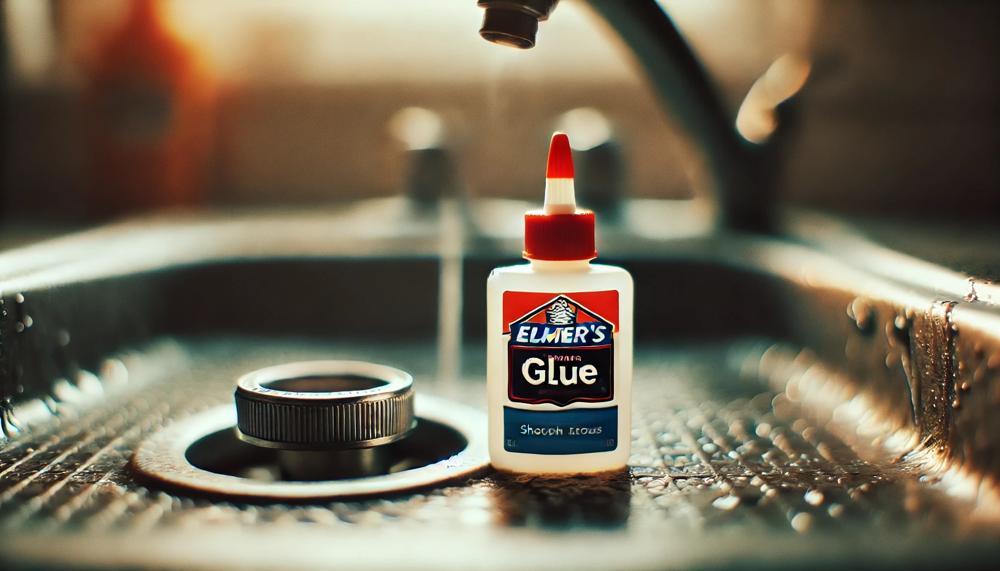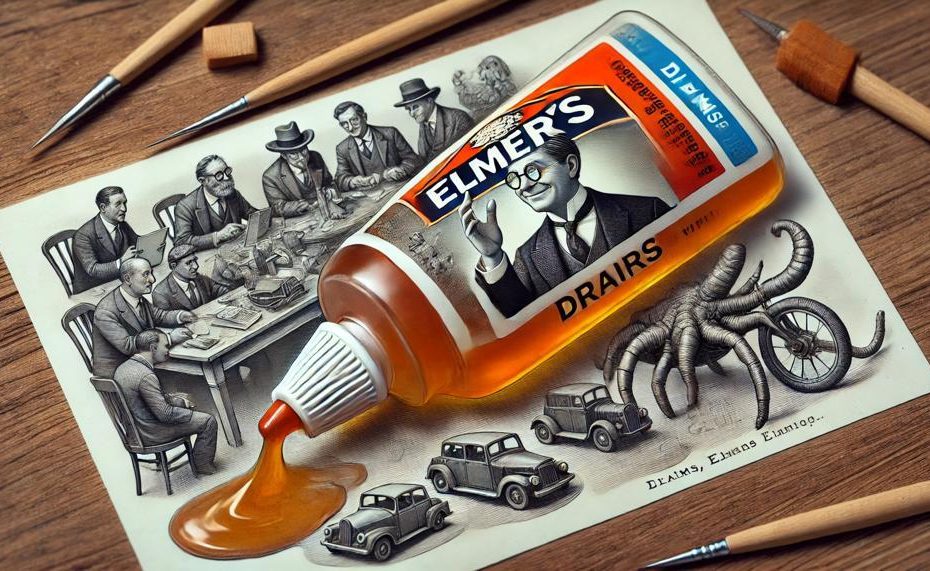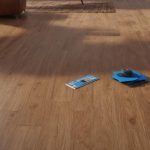Wondering if Elmer’s glue can safely go down the drain? The answer is a resounding “No.” This common household adhesive might seem harmless, but its disposal can create serious problems for your plumbing and the environment.
Let’s break down why tossing Elmer’s glue down the drain is a bad idea and what you can do instead.

Here’s what you need to know:
- Plumbing Problems: Elmer’s glue can clump and harden in your pipes, leading to stubborn clogs and potentially expensive repairs.
- Environmental Impact: The glue contains chemicals that aren’t biodegradable, posing a threat to aquatic life if they end up in our waterways.
- Septic System Disruption: For homes with septic systems, glue can interfere with the natural breakdown process, causing long-term damage.
- Safe Disposal Tips: The best way to dispose of Elmer’s glue is to let it dry out completely and then throw it in the trash.
By following these simple guidelines, you can avoid plumbing nightmares and contribute to a healthier environment. Keep reading to learn more about the risks and the safest ways to handle leftover glue.
Table of Contents
What is Elmer’s Glue?
Elmer’s Glue is a popular craft adhesive known for its versatility and ease of use. Primarily composed of polyvinyl acetate (PVA), this white glue is ideal for bonding porous materials such as paper, cardboard, and wood.
It can also adhere to soft materials like fabric and felt, though it’s not suitable for hard surfaces like glass or plastic.
How It Works:
Elmer’s Glue works through a process called polymerisation. When applied, the glue’s water content begins to evaporate, allowing the PVA molecules to form a flexible yet strong bond between the surfaces.
The glue penetrates the tiny pores of the materials, creating a mechanical grip that holds them together.
To achieve the best results, apply Elmer’s Glue evenly and let it dry completely before handling. The drying time can vary depending on the amount of glue used and the humidity in the environment.
Key Points About Elmer’s Glue:
| Material Suitability | Application | Limitations |
| Paper, cardboard, wood, fabric, felt | Apply evenly, allow to dry completely | Not suitable for glass, plastic, or heavy-duty bonding |
Safety and Environmental Considerations
Elmer’s Glue is non-toxic, making it safe for use in children’s crafts and school projects. However, it should not be poured down the drain due to its potential to cause plumbing issues and environmental harm. The glue can clump and create clogs in pipes, leading to costly repairs.
Additionally, the non-biodegradable chemicals can damage aquatic ecosystems if they enter waterways. Instead, let any leftover glue dry out completely before disposing of it in the trash.
Types of Elmer’s Glue
| Type of Elmer’s Glue | Description | Safe to Pour Down the Drain? |
| Elmer’s School Glue | Non-toxic, washable white glue ideal for school projects and crafts. Dries clear and is easy to clean up with water. | No |
| Elmer’s Carpenter’s Wood Glue | Stronger adhesive designed for woodworking. Provides a durable bond for wood materials and dries a natural color. | No |
Does Elmer’s School Glue Dissolve in Water?
Elmer’s School Glue dissolves in water. This characteristic makes it ideal for tasks where easy cleanup is desired, such as school projects or simple crafts.
When exposed to water, Elmer’s School Glue begins to break down. This is because it is a water-based adhesive. Upon contact with water, the glue softens and can be easily wiped or washed away. This dissolution process is due to the glue’s composition, primarily consisting of polyvinyl acetate (PVA), which is soluble in water.
Key Points:
| Type of Glue | Water Solubility | Ideal Use |
| Elmer’s School Glue | Highly soluble | Paper crafts, children’s projects |
| Elmer’s Carpenter’s Wood Glue | Weakens with prolonged exposure | Woodworking, furniture repair |
| Elmer’s Epoxy Glue | Resistant but can weaken | Heavy-duty bonding, waterproof projects |
Does Elmer’s Carpenter’s Wood Glue Dissolve in Water?
The short answer is no, Elmer’s Carpenter’s Wood Glue does not dissolve in water and can potentially cause clogs in drains. Although Elmer’s Carpenter’s Wood Glue is not water-soluble, prolonged exposure to moisture can weaken the glue’s bond.
Elmer’s Carpenter’s Wood Glue is formulated with water and a polymer, creating a strong adhesive suitable for wood projects. However, this composition also makes the glue susceptible to moisture. When exposed to water over an extended period, the glue weakens but does not dissolve completely. This characteristic is crucial to understand for practical applications and maintenance.
| Aspect | Details | Considerations |
| Water Solubility | Not water-soluble | Glue weakens with prolonged exposure but does not dissolve |
| Application | Indoor wood projects | Not recommended for areas with frequent water exposure |
| Drain Clogs | Potential clogging risk | Avoid disposing of in drains to prevent clogging |
| Alternative for Moist Areas | Elmer’s Carpenter’s Wood Glue Max | Formulated to resist water, better for outdoor projects |
In terms of drain safety, Elmer’s Carpenter’s Wood Glue can cause clogs if poured down the drain. The glue’s polymer content doesn’t dissolve, posing a risk of accumulating and blocking pipes.
For outdoor projects or any tasks where moisture exposure is inevitable, consider using Elmer’s Carpenter’s Wood Glue Max, which offers enhanced water resistance. This version is specifically designed to withstand moist conditions, making it a more suitable option for outdoor and damp environments.
Does Elmer’s Epoxy Glue Dissolve in Water?
No, Elmer’s Epoxy Glue does not dissolve in water. This type of glue is designed to create strong, durable bonds that withstand water exposure. Unlike other types of glue that might soften or dissolve in water, epoxy adhesives remain solid and intact, making them highly resistant to moisture.
Can Prolonged Exposure to Moisture Weaken Certain Types of Elmer’s Glue?
Prolonged exposure to moisture significantly weakens the strength and effectiveness of certain types of Elmer’s glue. This phenomenon occurs due to several factors:
- Absorption of Moisture: High humidity causes the glue to absorb moisture from the air. This absorption can lead to a thicker, lumpy consistency and potentially mold growth, reducing the adhesive’s effectiveness.
- Chemical Degradation: Moisture accelerates chemical reactions within the glue. In warm conditions, these reactions speed up, causing the glue to dry out and become brittle over time, losing its bonding strength.
- Contamination and Air Exposure: Prolonged exposure to air can lead to the glue drying out. Contaminants from the air can mix with the glue, further compromising its quality and adhesion properties.
To illustrate these effects, consider the following table:
| Factor | Impact on Glue | Result |
| High Humidity | Moisture absorption, mold growth | Thickens glue, reduces effectiveness |
| Warm Temperatures | Accelerated chemical reactions | Dryness, brittleness |
| Air Exposure | Drying out, contamination | Compromised bonding strength |
Conclusion
When it comes to disposing of Elmer’s glue, pouring it down the drain is a definite no-go. While this ubiquitous household adhesive might seem harmless, its impact on plumbing, septic systems, and the environment is far from benign.
Firstly, Elmer’s glue can create significant plumbing issues. The glue’s ability to harden and clump within pipes can lead to stubborn clogs, resulting in costly repairs. Even in small amounts, the glue can accumulate over time, eventually blocking pipes and causing serious drainage problems.
Beyond plumbing, the environmental consequences of improper glue disposal are alarming. Elmer’s glue contains non-biodegradable chemicals that can harm aquatic ecosystems. When washed down the drain, these chemicals can reach waterways, posing a threat to fish and other aquatic life.
For homes with septic systems, the risks are even greater. Elmer’s glue can disrupt the delicate balance of bacteria that break down waste, potentially causing long-term damage to the septic system.
To avoid these problems, it’s essential to dispose of Elmer’s glue correctly. Allow the glue to dry out completely before throwing it in the trash. This simple step can prevent plumbing issues and protect the environment.






